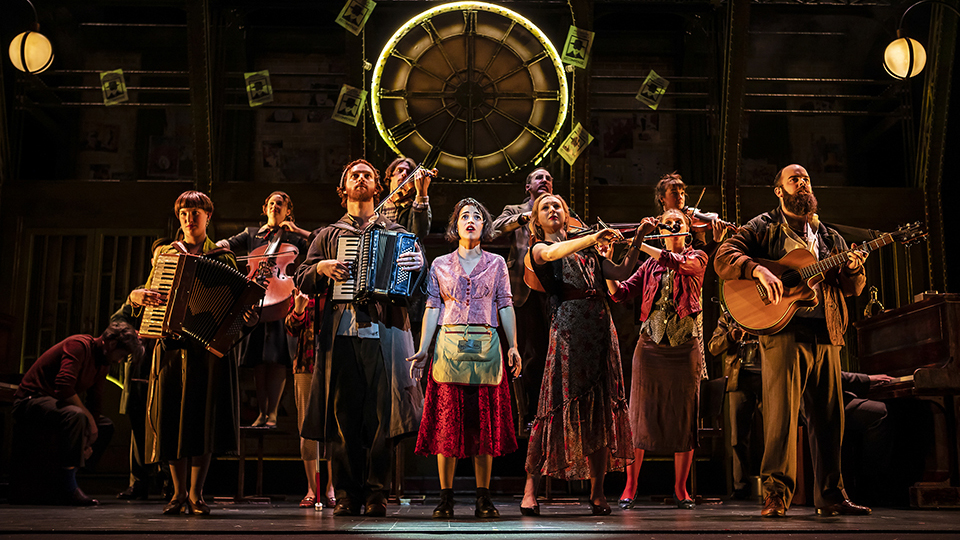
Every year during Grammy Awards season I feel very confused about the nominees for Best Musical Theater Album (the most important category).
It’s like I forget every year that the nominees are albums that were released between September/October and August/September of the next year (so this year’s are September 2019-August 2020). Because the Tony Awards include shows from June-April (ish), and London’s Olivier Awards are on a February-next February schedule, this means shows from the same Tony or Olivier season can be nominated in different Grammy years.
And it gets a little more twisted because Grammy nominations come out in November/December-ish for a January/February ceremony of the following year and can include winners from two calendar years ago. That is, while the latest nominations were announced in 2020, the winners will be announced in 2021, and some of the nominees are from 2019 albums. So let’s just make this simple and call these the 63rd Annual Grammy Awards.
Anyway, on to the French girl.
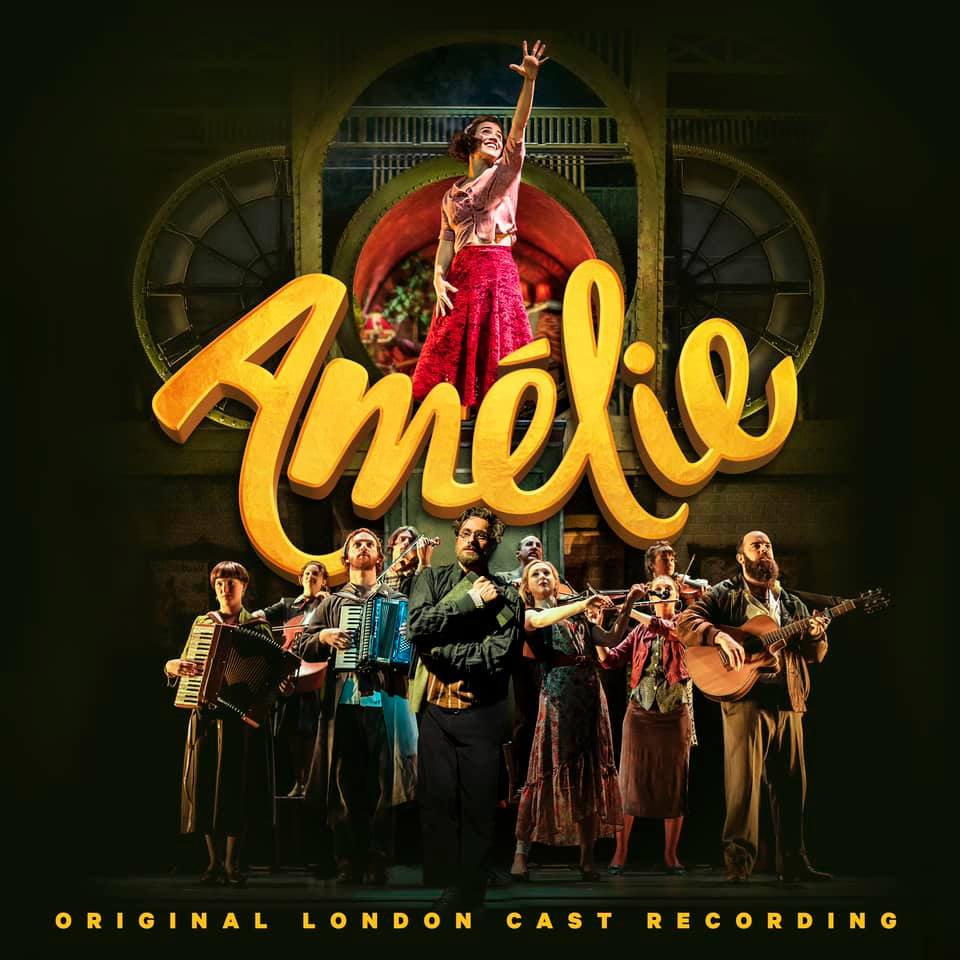
While the original London cast of Amélie is long gone, and the show closed (before COVID), they are still nominated for the Grammy Award for Best Musical Theater Album.
The fact that the original London cast of Amélie has a cast recording at all is certainly a rarity of Broadway-to-West-End transfers. But a quick comparison of song titles in the Broadway and London albums will clear up the necessity of a Londonified Amélie. With a mostly brand-new score, hardly any Broadway Amélie songs are part of the London cast recording, and the ones that are have different lyrics and a very different sound than the original.
Is “Frencher” a word? If it isn’t, I’m inventing (or reappropriating it) now for my purposes. The first striking difference between the original Broadway and London cast recordings of Amélie is that the latter is Frencher, featuring French accents from its French characters, whereas the former chose American accents. I didn’t need them, but especially on Audrey Brisson’s winsome title character, they added depth.
The music also has a distinctly French sound coming from that bagpipe/accordion-sounding instrument we all recognize from American depictions of France. The results of an extremely academic Google search of “What makes French music sound French?” suggests this instrument might be called a cabrette. But don’t quote me on that.
Listening to the London cast’s Amélie is the musical equivalent of reading an adventure story- just as you can’t help but turn the pages to find what excitement your characters will reveal, I couldn’t help but continue to listen and discover where the music and characters would take me. The album has strong musical continuity with few individually memorable songs, but at the same time it does not feel monotonous.
The mystic “The Flight of the Blue Fly” sets an enchanting scene suggesting a forthcoming surreal story. Dan Messé’s passionately upbeat musical theatre-folk score- somewhere between Once and Anastasia– brings us not only new songs but fleshed-out orchestrations that bring the folk genre to the forefront. And did I mention it’s Frencher? It’s a perfect blend that’s difficult to compare to anything else, and yet, it sounds familiar to the musical theatre family.
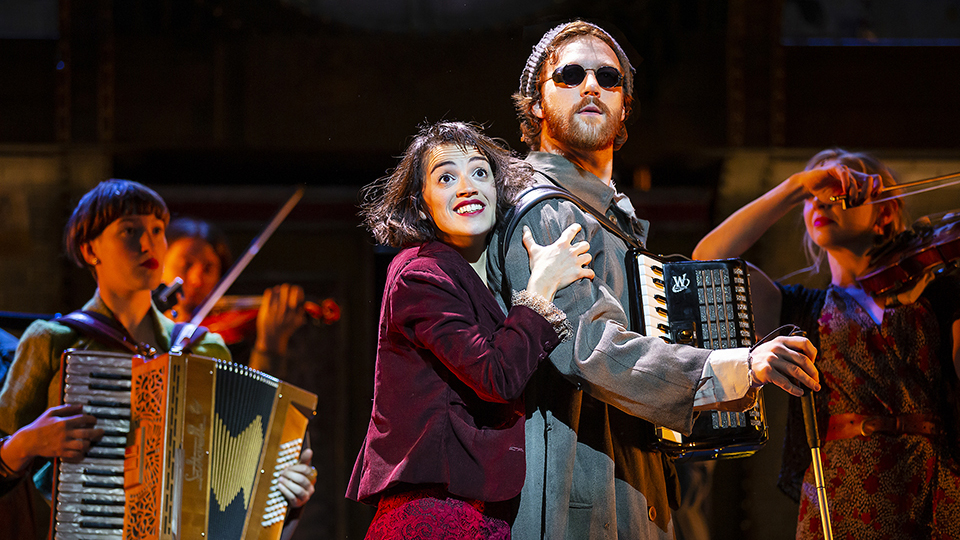
Going hand-in-hand with the folk sound, the piece has a strong storyteller motif, with a company of narrators playing a big role. I’m sure on stage it is enhanced because the performers play the instruments, so I can imagine an almost cartoonish traveling band surrounding the action (the production photos suggest something like that).
It seems rare that a musical style itself serves as a storytelling device throughout a musical as much as Amélie’s does. And it really doesn’t need to. For instance, Wicked’s first notes wonderfully set the scene for the inlying magical drama, but by “What is This Feeling?” the music has dropped the magic, and I don’t miss it. But Messé (and I daresay, new orchestrator Barnaby Race) stylizes his entire score to the credit of his musical. He paints a vivid picture appropriate for a vivid story, like in “Tour De France,” I felt like I was adventuring with Amélie through Paris.
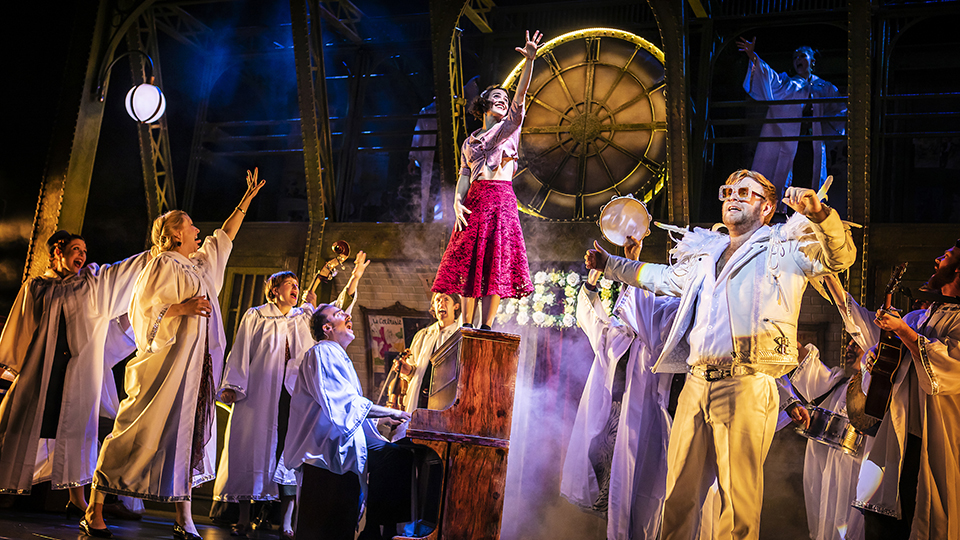
The absurdist moments that were weird in the Broadway album are endearing in the new score, like her imagined eulogy performed by an Elton John of her dreams (“Goodbye, Amélie”), or “The Sound of Going Round in Circles” in which Amélie describes the bizarre routine at her cafe. Although, the R-rated moment in “The Commute Home” is still weird.
Story-wise, the London version pivots the narrative to emphasize the serendipitous themes, in one notable example, pushing the Broadway opener “Times are Hard for Dreamers” to an 11 o’clock number. Messé and Nathan Tysen’s lyrics in the new songs narrow the focus to clearly answer the question “What is Amélie about?” which the Broadway version did not. A simple question, and yet easily muddled in a scattered surreal romp.
The main standout song “When the Booth Goes Bright” in and of itself was worth the whole new Amélie album. As Nino’s first major song, it gives him the entrance he needed. And in the hands of Chris Jared, Nino is earnest and lovable, with a modern musical theatre rock voice.
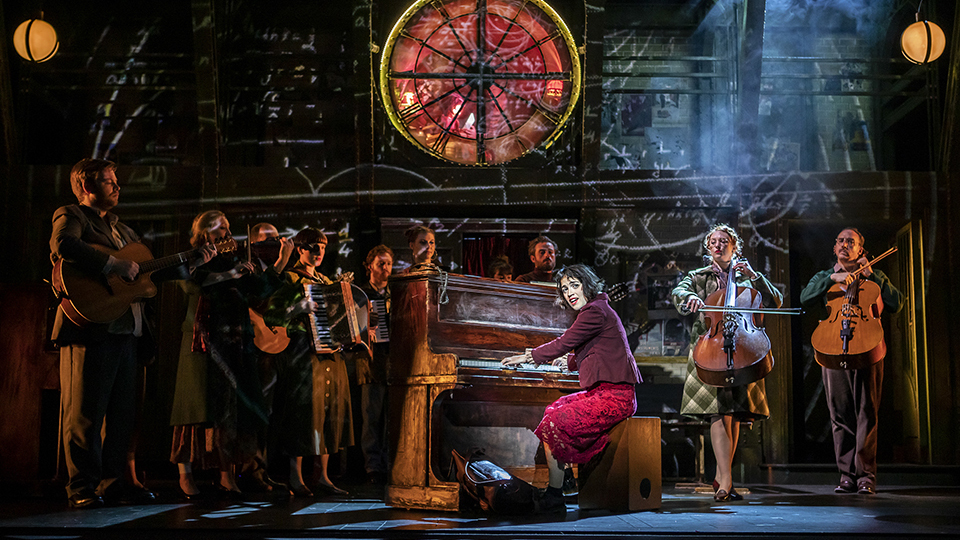
Audrey Brisson commands the show in an aggressively adorable way. I just want to be her best friend. She is not only the title character, but the heart and soul of the piece with gentle yet insistently pristine vocals, most showcased in the song- oh heavens, don’t make me choose! She’s all over the album almost nonstop and makes it simply delightful.
I have to say I had never enjoyed the Broadway cast recording of Amélie. I found it bland. So it was much to my shock that I enjoyed the London cast recording so much.
The 2017 original Broadway cast of Amélie received virtually no nominations from any awards organization and no Tonys, so it closed right after Tony nominations came out with a less than 60-performance run. It was not the year for dreamers. But its London run could almost serve as a make-up run, as it was nominated in the Olivier Awards earlier this year against the original London cast of Dear Evan Hansen (the original Broadway run of which won the most 2017 Tonys). So this year, the idealistic French girl gets her chance to redeem herself closer to her home turf in Europe.
Few musicals get to be reworked so soon after their first run, but what a benefit to the musical theatre world that Amélie did and has become what she was meant to be.
Photos courtesy of the Amelie website from the UK tour, photo credit Pamela Raith photography
